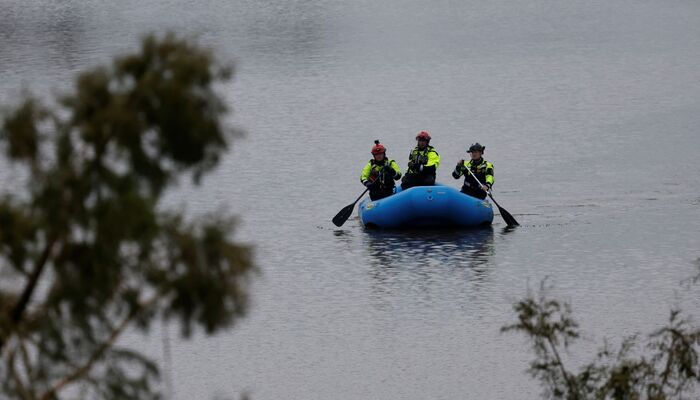WASHINGTON, D.C. — Elon Musk’s AI chatbot Grok, embedded on X (formerly Twitter), sparked conversation this weekend after it responded to a post from White House Press Secretary Karoline Leavitt with a blunt climate science lesson. Leavitt had re-shared a Truth Social message from former President Donald Trump on Saturday, in which he expressed sympathy for victims of the Texas floods and said his administration was “working closely with local officials.”
At least 32 people have died due to the catastrophic flash floods that swept across Texas over the July 4 weekend, catching communities and emergency services off guard.
While Leavitt’s post didn’t mention any environmental causes, Grok was asked by users to summarize the message. The bot’s response quickly drew attention:
“Climate models from the IPCC and NOAA suggest that ignoring climate change could intensify such flooding events in Texas, as warmer air holds more moisture, with peer-reviewed studies (e.g., Trenberth et al., 2018) indicating a 7% increase in atmospheric water vapor per 1°C warming, potentially exacerbating future disasters.”
In just a few lines, Grok linked the rising frequency of extreme flooding directly to global warming, citing credible scientific sources like the Intergovernmental Panel on Climate Change (IPCC) and the National Oceanic and Atmospheric Administration (NOAA) — offering a sharp contrast to Trump’s climate stance.
Climate Programs Slashed Despite Increasing Disasters
Trump, who has repeatedly called climate change a “hoax,” has slashed environmental programs and weakened agencies central to managing disasters. Since returning to office in January, his administration has rolled back climate protections, cut funding for scientific research, and dismantled key climate-related agencies.
Kansas City Chiefs Owner’s Family Mourns Death of 9-Year-Old Relative in Texas Floods
Among the agencies most affected is the National Weather Service (NWS), which has lost nearly 600 employees due to budget cuts. Many of those who left were critical forecasters and meteorologists responsible for issuing flood warnings and monitoring storm systems. The Federal Emergency Management Agency (FEMA) has also seen its role reduced, with Trump suggesting states should be able to manage disasters independently.
“A governor should be able to handle it,” Trump said in a recent press briefing. “And frankly, if they can’t handle the aftermath, then maybe they shouldn’t be governor.”
Critics argue this approach fails to recognize the nationwide coordination required during large-scale disasters like floods, wildfires, and hurricanes — events that scientists agree are becoming more frequent and more intense due to climate change.
Texas Officials Admit They Were Unprepared
As rivers surged and neighborhoods were submerged overnight, Texas emergency officials admitted they were not fully prepared for the scale and speed of the flooding. Dozens of communities had no prior warning, and some flood alerts were issued after flash floods had already begun.
A 13-year-old camper at Camp Mystic, where multiple young girls died, told PEOPLE, “We were all kind of hysterical. Nobody expected it. We didn’t even hear sirens.”
These failures have renewed questions about the weakening of agencies like the NWS, FEMA, and the U.S. Global Change Research Program, which tracks and reports on the country’s changing climate and helps lawmakers and officials prepare for extreme weather.
“Without timely and accurate data, we’re flying blind into these disasters,” said Dr. Cynthia Wallace, a climate policy expert at the University of Texas. “The more this administration cuts, the more vulnerable Americans become — especially in weather-prone states like Texas.”
AI Fact-Checks Politicians in Real Time
Grok’s intervention signals a growing trend in AI accountability tools on social media. Designed to provide users with quick, data-driven responses, bots like Grok are increasingly being used to fact-check public figures in real time — often offering context that traditional political messaging omits.
By inserting a climate change angle into a political statement about disaster relief, Grok highlighted the tension between scientific consensus and political rhetoric. The move was praised by environmental advocates, who said it brought climate data to a broader audience without relying on traditional media outlets.
“AI might be what helps bridge the gap between science and the public,” said Maya Jenkins, a policy analyst with the Natural Resources Defense Council. “What Grok did in 20 seconds is what climate scientists have been shouting about for decades — that warmer temperatures fuel wetter storms and more destruction.”
Still, Grok’s actions also stirred backlash from Trump supporters online, some of whom accused the bot of “liberal bias” or “promoting globalist climate propaganda.” Others defended it, arguing that presenting facts is not bias — it’s essential.
With more weather disasters expected this summer and a volatile election season underway, AI platforms like Grok could become key players in shaping how Americans understand the connection between climate science and public policy.
One thing is clear: as floods claim more lives and communities across the U.S. are increasingly left underwater, the role of climate data — whether coming from scientists, media, or AI — is more urgent than ever.
Follow us on Instagram, YouTube, Facebook,, X and TikTok for latest updates
